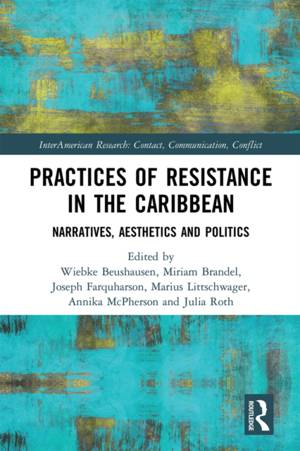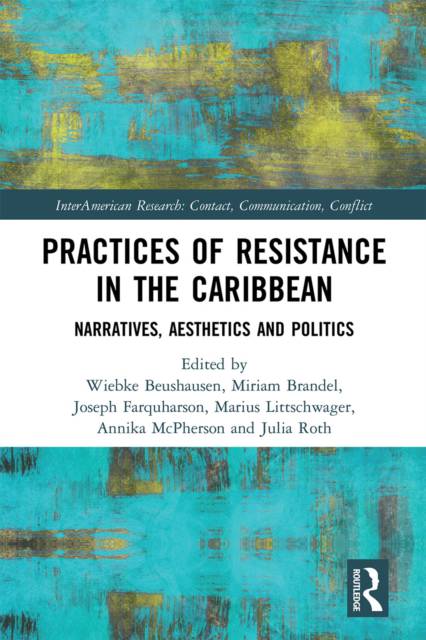
- Retrait gratuit dans votre magasin Club
- 7.000.000 titres dans notre catalogue
- Payer en toute sécurité
- Toujours un magasin près de chez vous
- Retrait gratuit dans votre magasin Club
- 7.000.0000 titres dans notre catalogue
- Payer en toute sécurité
- Toujours un magasin près de chez vous
Practices of Resistance in the Caribbean
Narratives, Aesthetics and Politics
Description
The Caribbean has played a crucial geopolitical role in the Western pursuit of economic dominance, yet Eurocentric research usually treats the Caribbean as a peripheral region, consequently labelling the inhabitants as beings without agency.
Examining asymmetrical relations of power in the Greater Caribbean in historical and contemporary perspectives, this volume explores the region's history of resistance and subversion of oppressive structures against the backdrop of the Caribbean's central role for the accumulation of wealth of European and North American actors and the respective dialectics of modernity/coloniality, through a variety of experiences inducing migration, transnational exchange and transculturation. Contributors approach the Caribbean as an empowered space of opposition and agency and focus on perspectives of the region as a place of entanglements with a long history of political and cultural practices of resistance to colonization, inequality, heteronomy, purity, invisibilization, and exploitation.
An important contribution to the literature on agency and resistance in the Caribbean, this volume offers a new perspective on the region as a geopolitically, economically and culturally crucial space, and it will interest researchers in the fields of Caribbean politics, literature and heritage, colonialism, entangled histories, global studies perspectives, ethnicity, gender, and migration.
Spécifications
Parties prenantes
- Editeur:
Contenu
- Nombre de pages :
- 306
- Langue:
- Anglais
- Collection :
Caractéristiques
- EAN:
- 9781032095509
- Date de parution :
- 30-06-21
- Format:
- Livre broché
- Format numérique:
- Trade paperback (VS)
- Dimensions :
- 156 mm x 234 mm
- Poids :
- 435 g

Les avis
Nous publions uniquement les avis qui respectent les conditions requises. Consultez nos conditions pour les avis.





